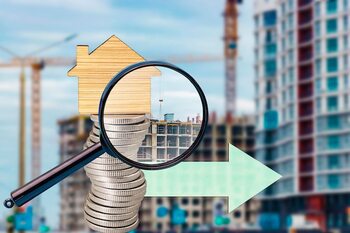The Value of Your Property and the Connectivity of the Future

The world is advancing at a breakneck pace, and connectivity has become a fundamental pillar for the value of your property. In Costa Rica, where location is key, understanding how improvements in digital infrastructure can enhance the appreciation of your home is essential. From high-speed internet to smart networks, discover how these elements not only elevate your quality of life but also turn your real estate investment into a more valuable and desirable asset.
The importance of digital infrastructure in real estate valuation
Digital infrastructure has become a determining factor when valuing properties, especially in a world where connectivity is essential for work and entertainment. In Costa Rica, improvements in fiber optic networks and access to high-speed internet not only provide convenience to residents but also increase the demand for those properties that have these amenities. A well-connected home not only enhances the quality of life but also makes it a more attractive option for potential buyers or renters, which inevitably translates into an increase in real estate value.
Moreover, smart cities and the implementation of smart technologies are transforming the urban and rural landscape. The integration of systems such as smart street lighting, connected security cameras, and efficient traffic management are elements that further enhance a property's value. Buyers are looking for not only a place to live but an environment that offers them safety and comfort through advanced technological solutions. Therefore, investing in properties located in areas with strong digital development can result in significant long-term appreciation and ensure their positioning as desirable assets within the real estate market.
2. Current trends in connectivity and their impact on the market
Current connectivity is rapidly transforming, with emerging technologies redefining the way we interact with our environment. The expansion of high-speed internet and the implementation of 5G networks not only enhance the daily experience of residents but also elevate the appeal of properties in the market. Buyers increasingly value technological features, such as the ability to work from home without interruptions or enjoy a seamless connection for entertainment and leisure. This shift in preferences has led to an increase in demand for homes located in areas with excellent digital infrastructure, which directly impacts their valuation.
Additionally, the development of smart homes has added a new dimension to connectivity. Integrated systems that allow control from lighting to home security through mobile devices are now considered essential by many buyers. This automation not only provides convenience and energy efficiency but also promotes a more sustainable lifestyle. As more people seek properties equipped with these innovative technologies, it is clear that connectivity has become a decisive factor in the purchasing process; those homes that embrace these trends are more likely to maintain or increase their long-term value.
3. How internet access influences the purchasing decision
Internet access has become a decisive factor in property buying, especially in a world where connectivity is essential for work and leisure. Today's buyers value not only the physical location of a house but also the quality of its digital infrastructure. A home with high-speed internet can attract professionals who work from home or students who require constant connection for their studies. This means that properties located in areas with good connectivity tend to have a higher appreciation, as they meet the modern needs of residents.
Additionally, access to the internet influences the general perception of the neighborhood and its potential as an investment. Areas where improvements in digital infrastructure have been made often see an increase in demand, which positively impacts local real estate market prices. The ability to enjoy services like streaming, telemedicine, or online educational platforms not only enhances the quality of life for residents but also makes those properties more attractive options for future buyers. In this sense, a well-connected home is not just a place to live; it is a safe bet for the economic and social future.
4. Smart homes: technology that increases the value of your property
Smart homes represent a revolution in the way we interact with our environment. Equipping your property with advanced technology not only enhances comfort and energy efficiency but also makes it more appealing to potential buyers. Automated lighting systems, smart thermostats, and connected security devices are just a few of the features that can elevate the value of your home. These innovations not only provide convenience but also promote a more sustainable lifestyle by optimizing energy consumption and reducing long-term costs.
By integrating technological solutions into your home, you are positioning your property within an increasingly competitive market. Today's buyers are looking for homes that offer modern connectivity and functionality; therefore, having a house equipped with smart technology can set it apart in a saturated real estate environment. The installation of devices such as virtual assistants and home automation systems not only modernizes the space but also creates a safer and more efficient environment, thus increasing its overall appeal and potential value over time.
5. Urban development projects and their relation to connectivity
Urban development projects are a key tool to strengthen connectivity in cities, and their impact goes beyond improving transportation and infrastructure. By integrating residential areas with commercial and recreational spaces, a more dynamic environment is fostered where residents can easily access essential services. This synergy not only enhances the quality of life but also increases the demand for properties in these interconnected areas. Therefore, when considering a real estate investment, it is vital to assess how these developments can influence the future value of your property.
The relationship between urban development projects and connectivity also extends to technological innovations that facilitate access to the internet and smart networks. Cities that prioritize these improvements often attract businesses and entrepreneurs, creating a vibrant ecosystem that drives local economic growth. This phenomenon not only benefits current homeowners by raising the value of their properties but also positions the community as an attractive place for future buyers or tenants. Understanding this link is essential for those looking to maximize their real estate investment in an increasingly interconnected world.
6. The benefits of telecommuting and its effect on desired locations
Remote work has transformed the way we perceive our residential locations, making the search for a home a more flexible and adaptive experience. With the ability to work from anywhere, many professionals are choosing to move to less urban areas, where they can enjoy a calmer natural environment and more spacious living. This trend has not only increased demand in rural or semi-rural locations but has also driven up property values in these areas, as they become attractive options for those seeking a balance between work and quality of life. Properties located in areas with good digital connectivity are now seen as true havens.
Additionally, telecommuting fosters a new perspective on local infrastructure. Areas that offer access to high-speed internet and reliable digital services are seeing a surge in their real estate value, as these features have become essential for those working from home. This means that investments in connectivity technology not only benefit current residents but also attract new buyers to the market. In this sense, the benefits of telecommuting go beyond personal comfort; they are a key driver for local economic growth and the ongoing appreciation of properties in strategically connected areas.
7. Myths about connectivity: debunking common beliefs
Connectivity is a concept that has generated numerous misconceptions that can influence the perception of a property's value. One of the most common myths is that having high-speed internet is only relevant for urban areas, when in reality, the demand for fast and reliable connections is growing everywhere, including rural areas. This access not only improves quality of life by enabling remote work and distance learning, but it also translates into a significant increase in property appreciation, regardless of location.
Another common myth is the belief that advanced technologies are an unnecessary luxury. In contrast, the reality is that having a solid digital infrastructure can be a decisive factor for many potential buyers. The implementation of smart networks not only optimizes energy consumption and enhances home security but has also become a standard expected by those looking to purchase a home. Thus, demystifying these beliefs about connectivity allows for an understanding of its true impact on real estate value and underscores the importance of investing in technological improvements as an integral part of the process of buying or selling a property.
8. The role of the government in improving digital infrastructure
The role of the government in improving digital infrastructure is crucial to ensure that all citizens, regardless of their location, have access to the necessary technologies to thrive in an increasingly connected world. Investing in the expansion of high-speed internet networks and the modernization of digital services not only benefits communities but also increases the value of local properties. When a government prioritizes improvements in digital infrastructure, it sends a clear signal to investors and buyers about the growth and development potential of a region, which can translate into a significant increase in real estate appreciation. Moreover, government initiatives can foster partnerships with private companies to further drive innovation and access to technological services. Programs that incentivize the implementation of smart and sustainable technologies create more attractive environments for future residents and businesses. An area with good connectivity not only improves the quality of life by facilitating remote work and distance learning but also turns less developed areas into desirable places to live, thus expanding the real estate market and diversifying economic opportunities. Ultimately, the government's commitment to digital infrastructure is a determining factor that can radically transform the real estate landscape of any community.
9. Comparative analysis: properties with and without good connectivity
The comparative analysis between properties with and without good connectivity reveals significant differences in perceived value and market demand. Properties that have access to high-speed internet, efficient communication networks, and advanced technological services tend to attract a broader audience, from young professionals to families looking for a functional home. This type of connectivity translates not only into convenience but also into the possibility of remote work and distance education, factors that are increasingly relevant in today’s society. On the other hand, properties lacking these features may experience a decrease in interest, which can directly impact their price.
Furthermore, effective connectivity can influence other aspects such as security and access to essential services. Homes located in areas with good digital infrastructure are often better positioned to benefit from innovations such as home automation systems and remote surveillance, which further increases their appeal to potential buyers. In contrast, properties lacking these features not only face challenges in adapting to the digital future but may also fall behind their better-connected competitors. Thus, when assessing the value of a property, it is crucial to consider not only its physical location but also its ability to integrate into a digitalized environment that promises to become increasingly relevant.
10. Future of housing: adapting to an interconnected society
The future of housing is intrinsically linked to the evolution of an interconnected society. As technology advances, the expectations of homeowners and tenants also change, prioritizing spaces that are not only functional but also equipped with the latest innovations in connectivity. Smart homes, equipped with automated systems that allow control of everything from temperature to security via mobile devices, are becoming a standard in the real estate market. This transformation not only enhances the quality of life for its inhabitants but also significantly increases the resale value and appeal of the property.
Additionally, the integration of sustainable and energy-efficient solutions plays a crucial role in this landscape. Properties that incorporate technologies such as solar panels or energy management systems are increasingly valued by environmentally conscious buyers. In this way, the future of housing is not only about being digitally connected but also about being ecologically responsible, creating an environment where human and planetary well-being coexist harmoniously. In this context, adapting to emerging trends and adopting innovative technologies becomes a key strategy to maximize both daily comfort and long-term return on investment.



